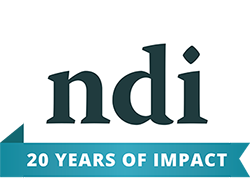By Nancy Boutot, Manager, Financial Empowerment, National Disability Institute
Internships
Internships are a great way to learn about different careers and gain experience which you can include in your resume or on college applications. An internship is a short term paid or unpaid learning experience with a focus on job training. There are many types of internships and Social Security looks at them differently. Let’s look at some of them.
Unpaid Internships
An unpaid internship is a short-term position, and you do not receive money for the work you do. The work enables you to gain experience, build your resume and meet people who may hire you in the future. Because it is unpaid, your Supplemental Security Income (SSI) and/or Social Security Disability Insurance benefit (SSDI) check is not effected. This can be a great way to network, which is a good strategy when looking for a job!
Unpaid internships must meet certain criteria. You can get more information about Internship Programs Under the Fair Labor Standards Act on the Department of Labor website.
Paid Internships
Paid internships are short-term programs offered by an employer where the intern gets paid for the work they perform. It is another great way to gain experience. Money earned from paid internships must be reported to SSA.
Volunteer Service Programs
Service programs are another form of internship where volunteers may receive payments and stipends. People may also receive an expense allowance, and/or reimbursement for certain of out-of-pocket expenses. SSA looks at these stipends differently depending on the type of program, and depending on whether someone receives SSI or SSDI. We are going to talk about two of them today that are similar, but count money differently:
AmeriCorps National Civilian Community Corps (NCCC) is aresidential service program for young adults, 18-24 years old that work in teams for a variety of community service projects. They may receive cash and in kind payments which may include the following:
- Living allowance payments
- Stipends
- Food and shelter
- Clothing allowance
- Educational awards
The cash and in kind payments made to young adults receiving SSI are excluded from income even if the payment meets the definition of wages. They are also excluded from resources.
For young adults receiving SSDI, only the stipends paid for other than expenses are counted as wages or earnings for the trial work period or substantial gainful activity months.
AmeriCorps Vista (Volunteers in Service to America) is similar to the AmeriCorps NCCC mentioned above. AmeriCorps VISTA is a national network of service programs that engage Americans to meet the nation’s needs in areas like disaster services, education, and healthy futures. Any payments made to volunteers in this program are not counted as earnings or income under either Social Security disability program. For more information, visit the AmeriCorps website.
ABLE Accounts and Your Future
Achieving a Better Life Experience or ABLE Accounts are savings accounts that help some people with a disability which began before age 26, save for disability related expenses such as education, transportation, housing and employment training. Earnings from internships can be put into an ABLE account.
The benefit of an ABLE account is that the money saved, up to a certain amount, is not counted against SSI, Medicaid, or other public benefits.
To learn more about the ABLE Act and how ABLE accounts may be able to help you save money, check out the ABLE National Resource Center (ANRC) or watch the archived webinar Achieving Financial Independence with Ticket to Work and the ABLE Act.
ABOUT THE AUTHOR
Nancy Boutot is a Manager of Financial Empowerment at National Disability Institute (NDI). Nancy provides training on Social Security work incentives, benefits planning and work supports and other asset development strategies to empower individuals and communities to maximize financial capabilities. Prior to joining NDI, she spent eight years with the Agency for Persons with Disabilities in Florida and 14 years directing nonprofit community based employment programs in Florida and New Jersey. Nancy earned her bachelor’s degree from Northeastern University, a Master of Science from the University of Medicine and Dentistry of New Jersey and is also a certified Community Work Incentives Coordinator (CWIC) through Virginia Commonwealth University’s National Training Center.



